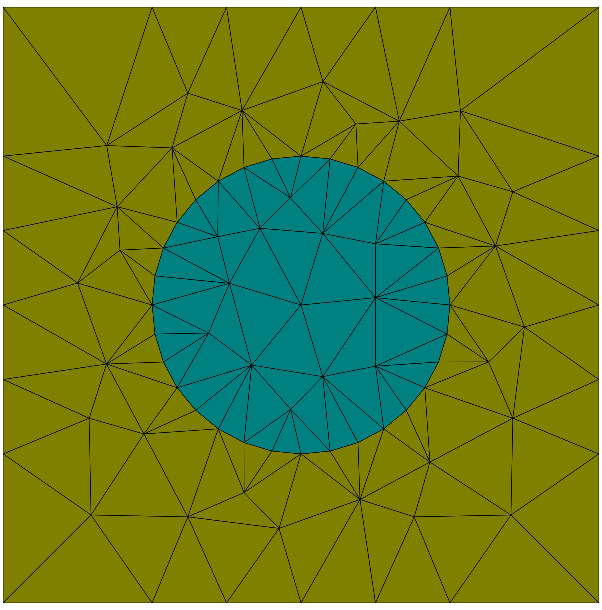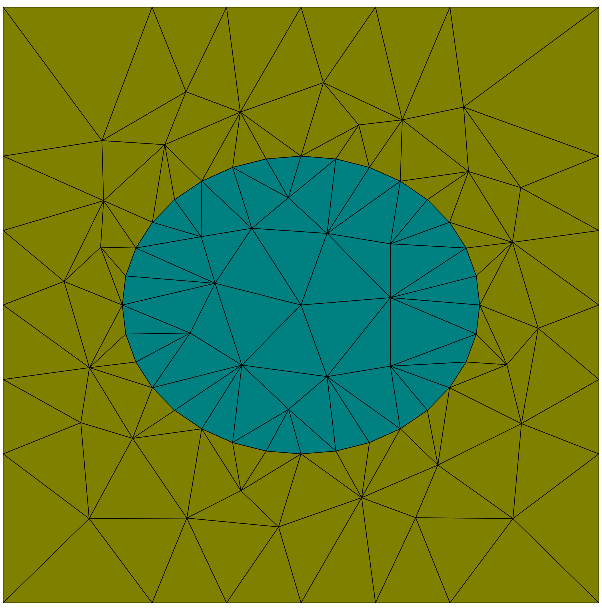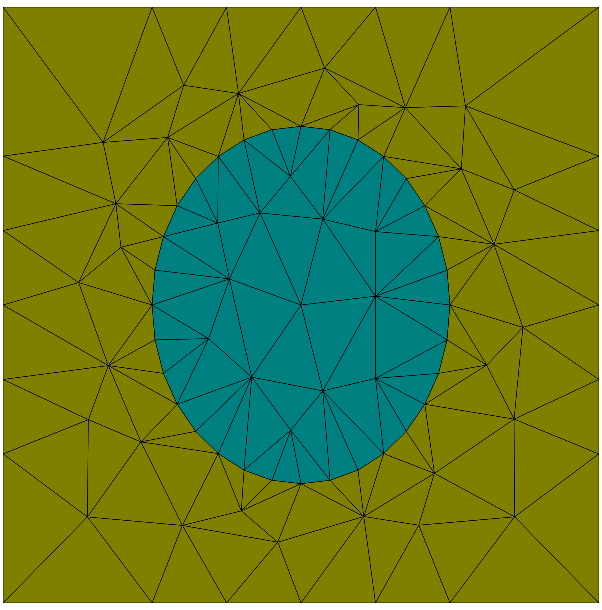Shape derivatives¶
Learning targets (advanced)
- Parameterize geometry for shape derivatives
Often it is of major importance to study the dependency of simulation results for a changing geometry (shape). JCMsuite allows to efficiently compute derivatives of simulation results with respect to geometrical shape parameters. This yields a linear approximation of the output results with respect to shape parameters.
This example shows an ellipse with parameterized semi-major-axis lengths. The layout.jcm file has the form
Layout2D {
...
Ellipse {
Name = "Core"
RadiusX = 5
RadiusY = 5
}
}
Shape derivative parameters are declared at the beginning of the layout.jcm file:
DerivativeParameter {
Name = "RX"
TreeEntry = Layout2D/Objects/Core/RadiusX
}
DerivativeParameter {
Name = "RY"
TreeEntry = Layout2D/Objects/Core/RadiusY
}
This declares two named shape derivative parameters (RX and RY). The entry TreeEntry refers to the actual value in the .jcm input tree. TreeEntry has the form of a path name. For the RadiusX this is Layout2D/Objects/Core/RadiusX, but instead of the section tag Ellipse you can also the section name if available.
With shape derivative parameter defined, JCMsolve will also compute the derivatives of the fields and their post process values with respect to the geometrical parameters.
JCMview allows to display the deformed meshes

Undisplaced mesh ( ,
,  )¶
)¶

Displaced mesh ( ,
,  )¶
)¶

Displaced mesh ( ,
,  )¶
)¶
.jcm Input File
layout.jcm [ASCII]
1 2 3 4 5 6 7 8 9 10 11 12 13 14 15 16 17 18 19 20 21 22 23 24 25 26 27 28 29 30 31 32 33 34 35
DerivativeParameter { Name = "RX" TreeEntry = Layout2D/Objects/Core/RadiusX } DerivativeParameter { Name = "RY" TreeEntry = Layout2D/Objects/Core/RadiusY } Layout2D { UnitOfLength = 1e-09 MeshOptions { MinimumMeshAngle = 20 MaximumSideLength = 10 } Objects { Parallelogram { DomainId = 1 Priority = -1 Width = 20 Height = 20 } Ellipse { Name = "Core" RadiusX = 5 RadiusY = 5 RefineAll = 2 DomainId = 2 } } }